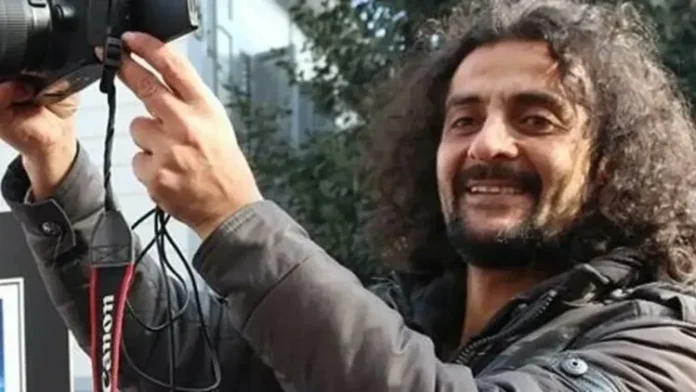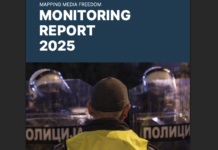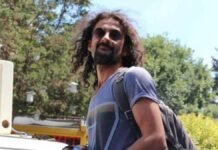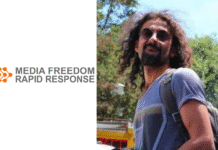International press organizations have joined local press groups in strongly condemning a fatal attack on journalist and environmental activist Hakan Tosun and urged Turkish authorities to conduct a thorough and transparent investigation to bring all perpetrators to justice, Turkish Minute reported.
Tosun, 50, an independent journalist known for his reporting on ecological destruction and local corruption, was attacked on October 10 while returning home in İstanbul’s Esenyurt district. His family and colleagues reported him missing after losing contact for several hours. He was later found severely injured and hospitalized at Başakşehir Çam and Sakura City Hospital, where he died on October 13.
According to security camera footage, two assailants on a motorcycle approached Tosun and struck him repeatedly on the head and neck. A Turkish court arrested two suspects believed to be connected to the attack, though no public statement has been made about their identities or possible motives.
In a statement on Tuesday the International Press Institute (IPI) said it was “deeply concerned that the attack may be linked to Tosun’s journalism, particularly his reporting on environmental issues and local corruption.” The organization called on authorities to “investigate all possible motives, including his journalistic work,” stressing that “attacks on journalists are attacks on the public’s right to know.”
“The killing of Hakan Tosun is a grave reminder of the dangers faced by reporters and activists in Turkey, and of the urgent need to ensure their safety and protect press freedom,” IPI said, expressing solidarity with Tosun’s family, colleagues and community.
The Committee to Protect Journalists (CPJ) also demanded that Turkish authorities conduct a comprehensive investigation into the death of Tosun to determine whether his killing was in retaliation for his journalism.
“The death of filmmaker Hakan Tosun is tragic and must be thoroughly investigated,” said Özgür Öğret, CPJ’s Turkey representative. “While the police acted quickly to make arrests, Turkish authorities must seek to identify any and all possible instigators in order to achieve full justice.”
Tosun’s death has sparked grief and outrage among journalists, environmental groups and political figures. Demet Parlar of the Climate Justice Coalition said Tosun “had long been the voice of nature and the oppressed,” urging authorities to find those responsible and ensure accountability.
Burhanettin Bulut, deputy chairman of the main opposition Republican People’s Party (CHP), condemned the killing as “an attack not only on a journalist but also on truth, press freedom and the right to information.”
Perihan Koca, a lawmaker from the pro-Kurdish Peoples’ Equality and Democracy Party (DEM Party), demanded answers from the interior ministry, asking why officials had remained silent. “They beat a journalist to death — a citizen who documented the memory of resistance,” she said.
The Association of Progressive Journalists said attacks on reporters had “become commonplace” in Turkey and demanded transparency in the investigation, a call echoed by Reporters Without Borders (RSF). RSF’s Turkey representative Erol Önderoğlu said, “All details about the motive for the attack on his life must be revealed. We demand the harshest punishment for all those responsible.”
Tosun, a former radio technician who later became a documentary filmmaker and editor, was widely known for his coverage of environmental protests, including recent demonstrations against quarry projects in Çorum and agricultural land expropriation in Hatay’s Samandağ district.
It is common for journalists to face physical violence and judicial harassment in Turkey while engaging in their profession.
Turkey, which has been suffering from a poor record of press freedom, was ranked 159th out of 180 countries in the 2025 World Press Freedom Index by Reporters Without Borders (RSF).















